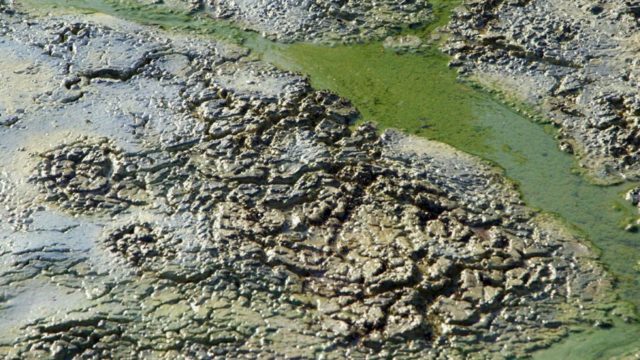
During this past summer you couldn’t miss hearing about the massive toxic algae bloom attacking the east coast of Florida.

By now, wrote the Washington Post, you may have seen pictures of the foul-smelling, tourist-repelling, guacamole-thick algae that has been spreading along some South Florida waterways, including along the state’s “Treasure Coast.” The Washington Post added pictures taken by NASA showing the massive size of the bloom.
It became so bad, Florida Governor Rick Scott declared a state of emergency. “Slimy Green Beaches May Be Florida’s New Normal” said a National Geographic headline. A Miami Herald editorial said this disaster was decades in the making and placed part of the blame on Gov. Scott and the Florida legislature, saying:
Since taking office in 2011, Gov. Scott has repeatedly assailed federal clean-water standards. He blocked a plan championed by environmentalists — and by his predecessor, Charlie Crist — to buy sugar industry land south of Lake O for water storage. And it was this governor, together with the Legislature, who agreed to a sneaky plan that diverts funding approved by voters to buy land that could be used for water storage to other, non-environmental projects.
Every major newspaper and television news network covered the crisis. The algae problem didn’t go away – the media did.
Earlier this week, The Weather Channel’s digital team took a look at the situation, how it began and where it stands now. They posted their report online and are allowing the SouthFloridaReporter to post that report. In addition to the video report, Pulitzer prize-winning author Marcus Stern with Kait Parker and Spencer Wilking documented their findings. You can read that report here. The report includes additional videos.
“Toxic Lake: The Untold Story of Lake Okeechobee” reported by meteorologist Kait Parker.












